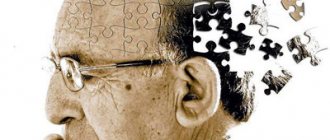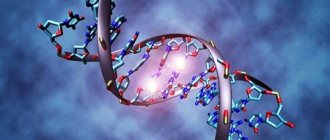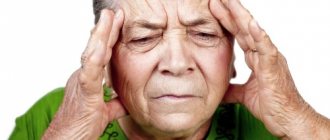How resentment shapes disease – Esoteric information
To be free and happy, or to carry fears and resentments within ourselves is up to us to decide.
The agenda is acceptance and dissolution of feelings of resentment. The figure shows a fairly typical variant of field deformation, which can cause a wide range of problems: from mild discomfort to severe physical pathologies. The deeper the field boundary is “pressed” into the physical body, the more severe the corresponding deformation pathology of the organs and systems of the physical body, and the wider the diameter of the “pressed” zone, the greater the number of systems and organs affected. The field deformation can affect the physical body at the level of any center, which indicates a possible disease of the organs of this area. This type of deformation indicates that a person has a strong resentment - severe, long-term, steadily generating states of criticism. They sometimes say about such states: “He (she) is choked by a severe resentment.” Or: “Resentment weighs on your chest.” Or: “Everything in my chest sank with bitter resentment.
A person carries such a resentment within himself, criticizes the person he is offended by, and repeatedly “replays” his critical statements in his mind, as a result of which he “falls” into his resentment even more strongly. By “winding up” himself in this way, he finds himself in a vicious circle of stable fixation of emotional reactions to emotional reactions. At some point, the source and cause of resentment already lose their original meaning, since a person “gets a buzz” from self-pity and self-consumption from his own emotional states. And the deforming tendency, which was “outlined” by the primary grievance itself, develops into a stable and steadily developing deformation of the field. An example from life: my daughter went to school completely healthy, and returned home with a high fever and cough.
The mother carried out diagnostics and identified this type of deformation at chest level. Investigating the cause of the deformity, the mother found out that the girl had quarreled with her best friend and was very worried about this event, taking offense at her friend and internally criticizing her attitude towards herself. The mother managed to explain to her daughter the groundlessness of her offense and criticism, and showed the mutual inability of her friends to come to an agreement. After this, the daughter performed the ritual of forgiveness (the technique for performing the ritual of forgiveness will be presented below) and got rid of the deformity. A few hours later there was no trace of fever or cough left.
The next morning the girl came to school completely healthy. But her friend didn’t come to school. It turns out that her condition was exactly the same, but her mother was not “seeing” and therefore decided that the girls simply contracted some kind of viral infection from each other. A week of standard treatment, generally accepted in such cases, ended with the girl seeming to have recovered, but the field deformation caused by the insult was not eliminated. The potential for the disease to become chronic in this case is a more than likely outcome of the “energy situation.”
When working with field deformations, the most important thing is to “get to” the true psycho-emotional causes of their occurrence. Otherwise, full treatment is impossible. Independent identification and elimination of etheric field deformations caused by resentment. Take a comfortable position, calm down and normalize your breathing - make it even, calm, shallow, rhythmic (1-2 minutes. A very important stage.
As a rule, we strive to look beautiful in our own eyes, and therefore do not want to admit to ourselves any “unseemly” emotional reactions, especially when it comes to our loved ones.
Honesty with oneself is crucial in the work of identifying and eliminating the causes of etheric disturbances. Just ask yourself the question: “Do I carry a grudge against anyone. Don't rush to answer right away. Remember your friends, relatives, acquaintances, colleagues, try to list in your mind everyone with whom you communicate, communicated, met, collaborated, were at enmity, etc. Human diseases and their psychological prerequisites ... various diseases, in addition to other unfavorable factors, are also called psychological characteristics, causally -the consequential connection between the psychology of a particular person and somatically... Any disease serves as a signal of some kind of disturbance in the system that unites the mind, body and emotions.
https://heatpsy.narod.ru/05/psychosomatika.html Psychological causes of illnesses and illnesses ... in a given direction you will have to do it yourself, having found yours in the list of diseases presented below - you can only understand... The results and speed of such an event, of course , depends on which tool you chose for this. https://tsuslik.ru/PSIHOLOGIC-PRICHINY
What do human illnesses indicate, the psychological causes of illnesses... our body signals that we are overtired and it’s time to take a short break, have you noticed: when something unpleasant happened at work, by... Initially, scientists considered physical (soma) and psychological diseases separately from each other. https://story-woman.ru/psihologia/o-chem-govoryat-bolezni-cheloveka/
Psychological causes of diseases - from A to Z
A-Z || I-P || R-Y
Abscess (ulcer). Disturbing thoughts of resentment, neglect and revenge.
Adenoids. A child who feels unwanted.
Allergy. 1) Who do you hate? Denial of one's own power. 2) Protest against something that cannot be expressed. 3) It often happens that the parents of an allergic person often argued and had completely different views on life. Another link about the psychological causes of allergies: https://ru-young.livejournal.com/10010.html
Angina. See also: “Throat”, “Tonsillitis”. 1) You refrain from using rude words. Feeling unable to express yourself. 2) You feel angry because you cannot cope with any situation.
Anemia. Lack of joy. Fear of life. Believing in your own inferiority deprives you of the joy of life.
Anorgasmia (lack of orgasm). This also includes a weak, “dull,” incomplete orgasm. Psychology has developed clear methods that allow you to achieve success in 95% of cases. Read more in the article: How psychologists help you find a real orgasm
Another article about the Causes of Anorgasmia
Anorectal bleeding (the presence of blood in the stool). Anger and disappointment. See “Hemorrhoids”.
Apathy. Resistance to feelings. Suppression of emotions. Fear.
Arteries (problems). Problems with arteries – inability to enjoy life. He does not know how to listen to his heart and create situations associated with joy and fun.
Arthritis. 1) The feeling that you are not loved. Criticism, resentment. 2) cannot say “no” and blame others for exploiting them. For such people, it is important to learn to say “no” if necessary. 3) An arthritic is someone who is always ready to attack, but suppresses this desire in himself. There is a significant emotional influence on the muscular expression of feelings, which is extremely controlled. 4) Desire for punishment, self-blame. State of the victim. 5) A person is too strict with himself, does not allow himself to relax, does not know how to express his desires and needs. The “inner critic” is too well developed.
Asthma. See also Psychotherapy for bronchial asthma 1) Inability to breathe for one’s own good.

Atherosclerosis. 1) Resistance. Tension. Refusal to see the good. 2) frequent distress due to sharp criticism. 3) The conviction that life is hard and unbearable, the inability to rejoice.
Insomnia. 1) Fear. Distrust in the life process. Guilt. 2) Flight from life, unwillingness to recognize its shadow sides. 3) Absorption in struggle, problems. The inability to separate yourself from the bustle, or yourself from your experiences and emotional states. 4) Unexpressed, suppressed and “unreacted” feelings and emotions. For a more detailed discussion of the psychological prerequisites for insomnia, see the link: Psychological prerequisites for insomnia and another link: What causes insomnia?
Bronchitis. 1) Nervous atmosphere in the family. Arguments and screams. A rare calm. 2) One or more family members are driven into despair by their actions. 3) Unexpressed anger and claims that cannot be presented.
Vaginitis (inflammation of the vaginal mucosa). See also: “Women’s diseases”. Anger at your partner. Feelings of sexual guilt. Punishing yourself. The belief that women are powerless to influence the opposite sex. 2) fear of not being up to par, fear for one’s femininity. 3) strong irritation and complaints against men. “I always meet some men who are not like that,” “It seems to me that there are no decent men at all.”
Phlebeurysm. 1) Staying in a situation you hate. Disapproval. 2) Feeling overloaded and overwhelmed by work. Exaggerating the severity of problems. 3) Inability to relax due to feelings of guilt when receiving pleasure. 4) Fear and anxiety about the future. Constant anxiety in general.
Vegetovascular dystonia. See Remedy for vegetative-vascular dystonia
Vegetative dystonia. infantilism, low self-esteem, tendency to doubt and self-blame.
Inflammatory processes. Fear. Fury. Inflamed consciousness. The conditions you see in life cause anger and frustration.
Sinusitis. See also: “Runny nose.” 1) Suppressed self-pity. 2) A protracted “everyone is against me” situation and an inability to cope with it.
Gastritis. See also: “Stomach diseases”. 1) Prolonged uncertainty. Feeling of doom. 2) Suppressed frustration and irritation that everything is not happening as it should, and instead of love and recognition, we receive neglect and hostility from the world. 3) A strong outburst of anger in the near past. For more detailed information about the psychological prerequisites for gastritis, see the special article: https://heatpsy.narod.ru/13/gastritis.html
Haemorrhoids. 1) Fear of not meeting the allotted time.

Herpes simplex. A strong desire to do everything badly. Unspoken bitterness. 2) Genital herpes. The belief that sexuality is bad. 3) Oral herpes. A contradictory state in relation to one object: one wants (one part of the personality), but cannot (according to the other).
Hypertension, or hypertension (high blood pressure). 1) Self-confidence - in the sense that you are ready to take on too much. As much as you can't stand. 2) there is a direct connection between feelings of anxiety, impatience, suspicion and the risk of hypertension. 3) due to a self-confident desire to take on an unbearable load, to work without rest, the need to meet the expectations of others, to remain significant and respected in their person, and due to this, the repression of one’s deepest feelings and needs. All this creates corresponding internal tension. It is advisable for a hypertensive person to give up the pursuit of the opinions of people around him and learn to live and love people, first of all, in accordance with the deep needs of his own heart. 4) Emotion, not reactively expressed and deeply hidden, gradually destroys the body. Patients with high blood pressure suppress mainly emotions such as anger, hostility and rage. 5) Hypertension can be caused by situations that do not give a person the opportunity to successfully fight for recognition of his own personality by others, excluding a feeling of satisfaction in the process of self-affirmation. A person who is suppressed and ignored develops a feeling of constant dissatisfaction with himself, which finds no way out and forces him to “swallow resentment” every day. 6) Hypertensive patients who are chronically ready to fight have dysfunction of the circulatory system. They suppress free expression of hostility towards other people out of a desire to be loved. Their hostile emotions seethe but have no outlet. In their youth they can be bullies, but as they get older they notice that they push people away with their vindictiveness and begin to suppress their emotions. 7) Aggressive thoughts are hidden behind your external equanimity. They put internal pressure on you.
Hypotension, or hypotension (low blood pressure). Dejection, uncertainty. 2) they killed your ability to independently create your life and influence the world. 3) you lose vitality. Do not believe in yourself, in your strengths and capabilities. You try to avoid conflict situations and evade responsibility. In this case, it becomes impossible to fully experience reality. You gave up on everything a long time ago: What's the difference?! Nothing will work anyway. 4) Hopelessness. Chronic feelings of guilt.
Hypoglycemia (low blood glucose). Depressed by the hardships of life.
Headache. See also: “Migraine”. 1) Underestimating yourself. Self-criticism. Fear. Headaches occur when we feel inferior and humiliated. Forgive yourself and your headache will go away on its own. 2) Headaches often occur from low self-esteem, as well as from low resistance to even minor stress. A person complaining of constant headaches is literally all psychological and physical pressure and tension. The usual state of the nervous system is to always be at the limit of its capabilities. And the first symptom of future illnesses is a headache. Therefore, doctors working with such patients first teach them to relax. 3) Loss of contact with your true self. The desire to meet the high expectations of others. 4) The desire to avoid any mistakes. 5) Hypocrisy, or the discrepancy between your thoughts and your behavior. For example, you are forced to smile and create the appearance of sympathy for a person who is unpleasant to you. 6) Fear.
Throat: diseases. See also: “Sore throat”. 1) Inability to stand up for yourself. Swallowed anger. Crisis of creativity. Reluctance to change. Throat problems arise from the feeling that we “don’t have a right” and from a feeling of inadequacy. 2) The throat, in addition, is a part of the body where all our creative energy is concentrated. When we resist change, we often develop throat problems. 3) You need to give yourself the right to do what you want, without blaming yourself and without fear of disturbing others. 4) A sore throat is always an irritation. If he is accompanied by a cold, then, in addition to this, there is also confusion. 5) You hold back from speaking harsh words, “swallow”, suppress your anger and other emotions, or are afraid to express out loud what you think. Feeling of one's own inferiority.
Flu and colds. See information about psychological prerequisites at the link https://heatpsy.narod.ru/09/grip.html See also the item in this table: “Infectious diseases. Weakness of immunity.”
Goody: diseases. 1) A person tries his best for those he loves and forgets about his own needs. At the same time, he unconsciously gets angry with those he cares about, because there is no time left to take care of himself.
Depression. See more details in the website section Depression: causes and ways to overcome it
Gums: diseases. Inability to carry out decisions. Lack of a clearly expressed attitude towards life.
Diabetes. 1) Longing for something unfulfilled. Strong need for control. Deep grief. There is nothing pleasant left. 2) Diabetes can be caused by a need for control, sadness, and an inability to accept and process love. A diabetic cannot tolerate affection and love, although he craves it. He unconsciously rejects love, despite the fact that at a deep level he experiences a strong need for it. Being in conflict with himself, in self-rejection, he is unable to accept love from others. Finding inner peace of mind, openness to accept love and the ability to love is the beginning of recovery from illness. 3) Attempts to control, unrealistic expectations of universal happiness and sadness to the point of hopelessness that this is not possible. Inability to live your life, because it does not allow (does not know how) to rejoice and enjoy your life events. 4) A strong lack of joy and pleasure from life. You need to learn to accept life as it is, without complaints or offense, just as you learn to walk, read, and so on. For more information about possible causes, see the link: Psychological prerequisites for diabetes mellitus
Diarrhea. For psychological reasons for the occurrence of diarrhea and irritable bowel syndrome, see the review article at the link: Psychological reasons for emotional diarrhea
Breathing: diseases. 1) Fear or refusal to breathe life deeply. You don’t recognize your right to occupy space or exist at all. 2) Fear. Resistance to change. Lack of trust in the process of change.
Cholelithiasis. See also the “Liver” section. 1) Bitterness. Heavy thoughts. Curses. Pride. 2) look for bad things and find them, scold someone. 3) Gallstones symbolize accumulated bitter and angry thoughts, as well as the pride that prevents you from getting rid of them. The stones are bitterness, heavy thoughts, curses, anger and pride accumulated over several years.
Stomach diseases. See also: “Gastritis”, “Heartburn”, “Gastric or duodenal ulcer”. 1) Horror. Fear of new things. Inability to learn new things. We don’t know how to assimilate the new life situation. 2) The stomach reacts sensitively to our problems, fears, hatred, aggressiveness and worries. Suppressing these feelings, unwillingness to admit them to oneself, an attempt to ignore and “forget” them instead of comprehending, realizing and resolving them can cause various gastric disorders. 3) Stomach functions are upset in people who react bashfully to their desire to receive help or a manifestation of love from another person, the desire to lean on someone. In other cases, the conflict is expressed in a feeling of guilt due to the desire to take something by force from another. The reason why the gastric functions are so vulnerable to such conflict is that food represents the first obvious gratification of the receptive-collective desire. In a child's mind, the desire to be loved and the desire to be fed are very deeply connected. When, at a more mature age, the desire to receive help from another causes shame or shyness, which is often in a society whose main value is independence, this desire finds regressive satisfaction in an increased craving for food. This craving stimulates gastric secretions, and chronic increased secretion in a predisposed individual can lead to the formation of ulcers.
Women's diseases. 1) Self-rejection. Refusal of femininity. Rejection of the principle of femininity. 2) The belief that everything connected with the genitals is sinful or unclean. It is incredibly difficult to imagine that the Power that created the entire Universe is just an old man who sits on the clouds and... watches our genitals! And yet this is what many of us were taught when we were children. We have so many problems with sexuality because of our self-hatred and self-loathing. The genitals and sexuality are created for joy.
Smell from the mouth. 1) Angry thoughts, thoughts of revenge. The past interferes, the hatred that a person is ashamed to even realize. 2) Dirty relationships, dirty gossip, dirty thoughts.
Body odor. Fear. Self-dislike. Fear of others.
Constipation. 1) Reluctance to part with outdated thoughts. Getting stuck in the past. Sometimes in a sarcastic way. 2) Constipation indicates an excess of accumulated feelings, ideas and experiences that a person cannot or does not want to part with and cannot make room for new ones. 3) A tendency to dramatize some event in your past, an inability to “resolve” that situation (complete the gestalt) 4) Perhaps you are afraid to end a relationship that will no longer give you anything. Or you're afraid of losing a job you don't like. Or you don’t want to part with things that have become useless.
Teeth: diseases. 1) Prolonged indecision. Inability to recognize ideas for subsequent analysis and decision making. Loss of the ability to confidently plunge into life. 2) Fear. 3) Fear of failure, to the point of losing faith in yourself. 4) Instability of desires, uncertainty in achieving the chosen goal, awareness of the “insurmountability” of life’s difficulties. 5) A problem with your teeth tells you that it’s time to take action, specify your desires and begin to implement them.
Itching. Desires that go against character. Dissatisfaction. Repentance. The desire to get out of the situation.
To work with the psychological background of diseases, the author of the site recommends the technique of Deep immersion into your body.
Psychosomatic mutual influences, as well as psychosomatic diseases, are an objective reality. It is no coincidence that new definitions of the disease increasingly emphasize the role of the mental factor. Any scheme is conditional, so the identification of psychosomatic diseases is also conditional. However, in some somatic diseases, the importance of the mental factor, mental overstrain is so great for their occurrence and development that they can and should be classified as a group of psychosomatic diseases.
Psychosomatic medicine (psychosomatics) is a branch of general pathology that studies somatic disorders and diseases that arise under the influence or with the participation of emotional stress, in particular mental influences experienced by an individual in the past or present.
© Pozdnyakov Vasily Alexandrovich, Psychology of love.
Psychologist's website about the art of love. (Viewed 504 times, today)
Is it true that all women’s diseases arise from grievances?
Yes, women’s diseases also arise from resentment – against men, against other people, against oneself. But not only from grievances. Also from rejection of oneself as a woman, rejection of one’s feminine essence and female functions, even rejection of one’s appearance. Such a woman, as a rule, cannot, does not want, or does not give herself the right to be a real woman.
And all this is on a subconscious level. A woman can prove as much as she wants that she is a woman, but her subconscious programs block her femininity. Also, some women's diseases are caused by the Soviet and Christian myth that everything related to sex is a sin and bad. You can read more about this in the book by Liz Burbo Your body says: love yourself, in the book by Valery Sinelnikov Love your illness, etc. There is no doubt that many diseases are caused by weakened immunity and hormonal imbalances.
Immunity and the production of hormones are strongly related to the autonomic system, which can be undermined by mental and stress reasons, which are cumulative, accumulative in nature. This is how negative emotions (including grievances) accumulate in the subconscious and then a breakdown of the immune system and hormones and then a gynecological disease. But gynecological diseases can arise from sexually transmitted diseases, which, if not properly treated, become chronic; Diseases can also arise from hypothermia, improper wearing of clothing (for example, wearing a thong allows E. coli to enter the genitals and cause inflammation), smoking, alcohol abuse, injuries, and improperly performed abortions.
In general, there are many reasons, and psychological trauma (for example, accumulating resentment) is only one of the reasons. The great secret of health: Jealousy causes back pain, and anger causes heartburn. Scientists have proven that only joyful and bright feelings make us healthy , and all illnesses come from our grievances, anger , and anger. I checked for sure. As soon as I think something is very unfair, I’m brought to tears, I immediately catch a cold and my throat starts to hurt.
Unspoken anger. And sinusitis is constantly suppressed tears. And all women's problems, including thrush from our angry thoughts about men. Men, by the way, also develop prostatitis, urethritis, and so on from insults towards women. so forgive everyone and accept the world as it is, don’t try to change anything or anyone and you will be happy.
And my gynecologist also told me that he recently attended some international seminar on maternal health and all the luminaries in this science gathered there and they named the causes of fibroids, mastopathy and other diseases, so they put stress in the first place, the second is ecology, the third is heredity, the fourth is an unhealthy lifestyle (smoking, alcoholism, frequent changes of partners, abortions, etc., etc.
How resentment forms a disease - Esoteric information ... a fairly typical variant of field deformation, which can cause a wide range of problems: from mild discomfort to severe physical pathologies, the agenda is the acceptance and dissolution of feelings of resentment... The deeper the field boundary is “pressed” into the physical body , the more severe the pathology of organs and systems of the physical body corresponding to the deformation, and the wider the diameter of the “depressed” zone, the greater the number of systems and organs affected. https://neo-ezoterika.ru/samorazvitie/kak-obida-formiruet-zabolevanie
How are your resentment and the illnesses of your children interconnected...being stoned, you have every right to disagree with me, a very delicate topic, I couldn’t approach it for a long time... But if something wrong happens in your life, with your children, think about it , perhaps in my words you will find some answer for yourself. https://www.cluber.com.ua/lifestyle/psihologiya-lifestyle/2016/12/kak-vzaimosvyazanyi-vasha-obida-i-bolezni-vashih-detey/
Is it true that all women’s diseases arise from grievances? ...rejection of herself as a woman, rejection of her feminine essence and feminine functions, even rejection of her appearance, but not only from insults... Such a woman, as a rule, cannot, does not want, or does not give herself the right to be a real woman. https://www.bolshoyvopros.ru/questions/1157009-pravda-li-chto-vse-bolezni-po-zhenski-voznikajut-iz-za-obid.html











